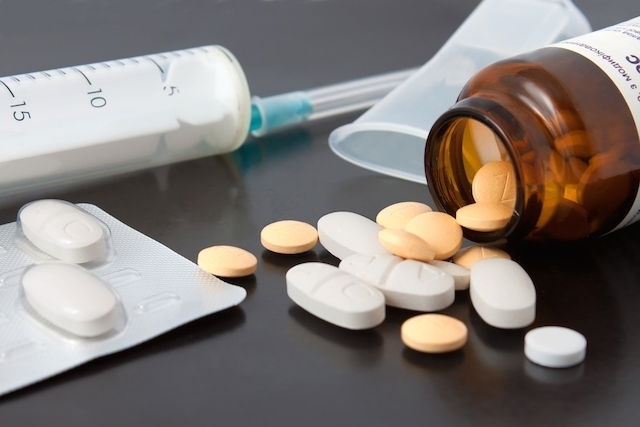Diabetes medication, for type 1 and 2, control blood sugar levels to keep them within a normal range. Maintaining normal blood sugar levels can help prevent complications like retinopathy and kidney failure.
With type 1 diabetes, the main medication is insulin, which should be used on a daily basis. With type 2 diabetes, oral antidiabetics, like metformin, glimepiride and gliclazide are usually prescribed. In addition, it is also important to maintain a diet with limited sugar and fat, and to exercise every day.
Medications vary from patient to patient and depend on many factors, like the type diabetes, the severity, and the age of the patient. Treatment should be monitored by an endocrinologist or family doctor.

Type 1 diabetes medication
In this type of diabetes, the pancreas is either unable to produce insulin or produces it in small small quantities. Treatment is aimed at simulating the natural production of this hormone, at the same times and in the same quantities that a normally-functioning pancreas would produce it. Quantities and scheduling will vary from person to person.
To simulate the action of the pancreas, patients are often advised to use at least 2 types of insulin, which include:
These medications can be obtained at any pharmacy with a prescription medication.
To help reduce the number of injections per day, some of these insulins can be prepared as a combination, with both fast-acting and slow-acting insulins mixed together.
Another option for type 1 diabetics is to use an insulin pump. This is a small device that is connected to the body and is programmed to release fast-acting or slow-acting insulin, depending on the person’s blood sugar levels.
Type 2 diabetes medication
Oral hypoglycemiants and antidiabetics are the medications most used by type 2 diabetics. These can be taken on their own or as a combination, and they work to control blood sugar levels. Some examples include:
In cases with very elevated glucose levels, or when oral medications are not effective, the doctor may include insulin injections in the treamtent. To treat type 2 diabetes, sugar, carb, gat and salt intake should all be controlled. Patients should also engage in regular physical activity.
Diabetes medication and with weight loss
Medications for diabetes should not be used by people who are not diabetic and are looking to lose weight. This can be a health hazard. Medications used to control sugar levels often lead to weight loss in diabetics, because blood sugars are better managed and the patient often has less of an appetite.
Nonetheless, these medications should not be used by non-diabetics. To lose weight, you should opt for foods that naturally manage blood sugar levels, like cinnamon, passion fruit peel flour, and ground golden flax seeds.
Home remedies for diabetes
Natural remedies for diabetes are a great way to complement medical treatment. These remedies contain properties that help reduce glucose levels in the blood. Some teas that can be used for blood sugars are gorse tea, cinnamon tea and salvia tea. Check out other teas for diabetes that are scientifically proven to lower glucose levels.
Another great home remedy is using passion fruit peel flour, as it contain pectin. Pectin is a fiber that acts on the reduction of glucose in the blood. Read other tips for lowering blood sugar that you can use to incorporate into your treatment.
When treating diabetes, it is important to avoid eating foods that are high in sugar or carbs, like fruit jellies, cookies and potatoes. You should consume foods that are rich in fiber like vegetables, apples, flax seeds, whole wheat bread and natural fruit juices. Learn more about what to eat and avoid for a diabetic diet.






























